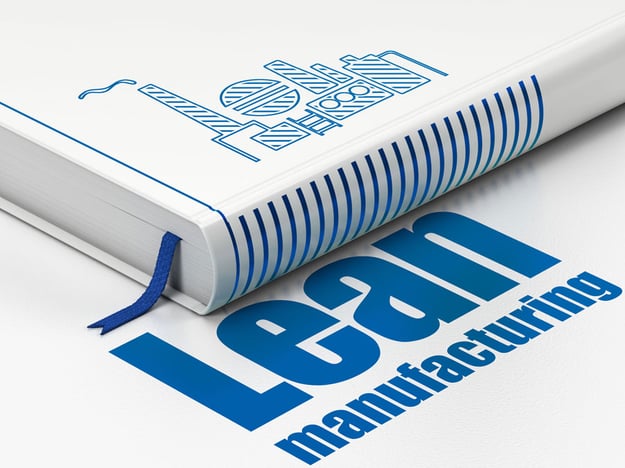Quick Answer: Lean Waste Reduction in Manufacturing
Lean manufacturing reduces waste by tightening flow, limiting inventory, and eliminating non-value work. It performs best when demand and suppliers are stable. The tradeoff is fragility: with little buffer, a late shipment or machine failure can cascade into missed deliveries. To make lean sustainable, pair lean methods with constraint-based scheduling (APS) so plans reflect real capacity and can be re-optimized when disruptions hit.

Lean Waste Reduction Under Disruption: What Holds Up and What Doesn’t
Lean manufacturing has long been celebrated as a strategy for cutting waste, improving efficiency, and sharpening competitiveness. Originating in the Japanese automotive industry, lean spread worldwide as manufacturers looked for ways to streamline operations and eliminate non-value-added activities. The promise of lean is compelling: produce more with less, reduce costs, and maintain quality.
Yet many leaders discover that lean is not always as smooth as it appears on paper. The same principles that reduce waste also expose vulnerabilities. Lean is efficient when everything goes right, but it can quickly become brittle when disruptions occur. For manufacturers, the challenge is not just to embrace lean but to understand where it thrives, where it struggles, and how to make it sustainable in today’s volatile environment.
What Works: Lean as a Driver of Waste Reduction
Traditional production often produces mountains of waste. Excess raw materials fill warehouses, machines sit idle waiting for inputs, and long queues of unfinished goods clutter the floor. Lean manufacturing addresses these inefficiencies by systematically identifying and eliminating waste.
One of the most visible successes of lean is in motion and layout. Consider a shop floor where operators previously walked across the plant to retrieve tools. By reorganizing workstations, motion waste is eliminated and cycle times drop. Waiting waste is another area where lean shines. With just-in-time deliveries, materials arrive exactly when needed, reducing idle time for both workers and machines. Overproduction waste is also minimized as lean aligns production more closely with real customer demand.
These examples show why lean has become such a global standard. When processes are stable, suppliers deliver reliably, and scheduling is accurate, lean significantly reduces costs and strengthens competitiveness. It works because it forces organizations to focus on what truly adds value and strip away everything else.
What Doesn’t: The Hidden Risks of Lean
The strengths of lean are also its weaknesses. By minimizing buffers and slack, lean creates a system that has very little room for error. When disruptions occur, the consequences can be severe.
Equipment failures are a prime example. In a traditional environment, one machine breakdown may slow things down but can often be absorbed by redirecting work to other machines. In a lean environment, every resource is fully utilized. A single breakdown can halt the entire line, causing cascading delays.
Delivery inconsistencies present another risk. With lean systems carrying little or no safety stock, late deliveries from suppliers can immediately stall production. For example, if a shipment of specialized materials arrives late, there are no backup inventories to keep work moving. The result is late deliveries to customers, strained relationships, and in some cases, lost contracts.
Finally, lean is not only about processes, it is also about people. Employee dissatisfaction can grow if workers feel pressured by new methods that demand continuous improvement without adequate support. Resistance to change can undermine lean initiatives, particularly when leadership underestimates the cultural shift required.
Lean reduces waste, but it also reduces flexibility. Leaders must recognize that adopting lean is not simply about cutting excess but also about preparing for volatility and building resilience into the system.

Decision Framework: When Lean Works (and When You Need APS)
Lean works best when:
- Demand is relatively stable and lead times are predictable.
- Supplier performance is consistent (OTIF is high).
- Constraints are well understood and changeovers are controlled.
Lean becomes risky when:
- Frequent expediting is normal (priority changes daily/weekly).
- One bottleneck drives the schedule and downtime is common.
- Materials availability or labor constraints fluctuate.
Choose a “Lean + APS” approach if you need to:
- Build schedules that respect real capacity and constraints.
- Re-plan quickly when disruptions hit (late supplier, machine down, rush orders).
- Protect on-time delivery without inflating inventory buffers.
Related APS resources:
What’s Next: Strengthening Lean with Better Scheduling and APS
Lean’s future will depend on its ability to adapt. The next stage for manufacturers is to combine lean principles with tools that address its weaknesses. This is where advanced planning and scheduling (APS) systems become essential.
Without scheduling support, lean can become rigid and brittle. APS adds the adaptability lean needs by creating finite schedules that respect the real-world constraints of machines, labor, and materials. This prevents over-promising and ensures that production plans reflect what can actually be achieved.
When disruptions happen, APS provides the ability to adjust in real time. If a supplier shipment is delayed or a critical machine goes down, APS can recalculate schedules, reassign tasks, and keep production moving. This responsiveness protects lean systems from becoming paralyzed by small disruptions.
APS also strengthens lean by maximizing bottleneck throughput. Lean seeks to eliminate waste, but bottlenecks are an unavoidable reality. APS ensures that scarce resources, such as specialized equipment or skilled labor, are used as efficiently as possible.
In short, APS acts as the bridge between lean theory and lean execution. It keeps waste reduction at the center while providing the agility and foresight needed to survive in today’s complex manufacturing environment.
Making Lean Sustainable for the Future
Lean manufacturing remains one of the most powerful approaches for waste reduction, but it cannot stand alone. What works is its ability to strip away inefficiencies. What does not work is its vulnerability to disruption. What comes next is the integration of lean principles with advanced scheduling capabilities that make the system both efficient and resilient.
Less waste, fewer delays, stronger schedules. That is the future of lean manufacturing when supported by APS.
Make lean resilient: confirm you’re ready for APS
Lean works when processes are stable—but the same buffers you remove to cut waste also remove your margin for error. As this article highlights, APS strengthens lean by building finite schedules around real constraints and enabling fast schedule recalculation when disruptions occur (late materials, machine downtime, bottleneck shifts).
Before you take the next step, use the APS Readiness Score eBook to identify what will make (or break) a successful APS rollout:
-
Pressure-test data readiness: BOM accuracy, routing/setup times, labor/shift patterns, maintenance windows, bottlenecks, and existing spreadsheets/tools.
-
Expose the “JIT fragility” points: how often schedules change due to shortages, what inventory buffers exist, and how quickly schedule changes are communicated across departments.
-
Define shared success metrics (so execs and planners don’t optimize different outcomes): schedule stability, late orders, utilization, overtime/idle time, OTD, expediting frequency, and capable-to-promise confidence.
-
Build adoption into the plan: change champions, resistance handling, and concrete steps like readiness checklists and baseline metric collection so teams don’t fall back to manual scheduling under pressure.

Lean Waste Reduction FAQs
What is waste in lean manufacturing?
In lean, waste is any activity that consumes time, labor, materials, or capacity without increasing customer value. Common examples include waiting, excess inventory, unnecessary motion, defects, overproduction, extra processing, and transportation.
Why can lean systems fail during disruptions?
Lean reduces buffers, which improves efficiency in stable conditions. But when suppliers slip, demand changes, or equipment goes down, the lack of slack can amplify the disruption—causing missed schedules, expediting, and late deliveries.
Is just-in-time (JIT) the same as lean?
JIT is a core lean method focused on producing and replenishing only what’s needed, when it’s needed. Lean is broader: it includes continuous improvement, quality at the source, flow, standard work, and eliminating multiple forms of waste—not only inventory.
How can manufacturers reduce stockouts without abandoning lean?
Many teams use targeted buffers rather than blanket safety stock: protect critical parts, stabilize supplier performance, shorten changeovers, and improve schedule reliability. Better visibility into constraints and realistic sequencing also reduces “false promise” stockouts.
How does APS scheduling support lean waste reduction?
APS aligns production plans to real constraints—machine capacity, labor availability, materials readiness, and changeovers—so schedules are achievable. When disruptions occur, APS can re-optimize sequencing to protect bottlenecks and maintain delivery performance.
Ready to make lean hold up under real-world disruption? Request a PlanetTogether APS demo to see finite-capacity scheduling and rapid re-planning in action.